The last thing consumers who purchased certain types of wood flooring from Lumber Liquidators thought they would be concerned about was their health, but that’s just what someone hundred thousand or so consumers are faced with. The embattled wood flooring company headquartered in Toano, VA is currently immersed in a wood flooring scandal that could not only significantly damage their ability to continue operating in the future, but also being accused of knowingly impacting the health of their customers.
But this isn’t the first accusation of wrongdoing by Lumber Liquidators either.
Knowingly Importing Illegal Wood Flooring?
In 2013, US federal agents raided Lumber Liquidators’ Virginia headquarters as part of ongoing investigation into suspected imports of illegally sourced hardwood flooring. Then a report is released uncovering questionable supply chains of illegal timber from the Russian Far East, through Chinese factories, to U.S. consumers. The report presents evidence that Lumber Liquidators knowingly imported hardwood flooring that was sourced illegally from the Russian Far East via a Chinese supplier. Lumber Liquidators denied the allegations despite the evidence to the contrary. In 2014, a Russian court finds six senior executives of Lumber Liquidators’ Chinese manufacturer’s main Russian timber supplier guilty of organized crime and illegal logging and the Russian company CEO is sentenced to 15 years. Yet Lumber Liquidators still received shipments from their Chinese supplier in 2014, which was one year after the Russian company executives were first arrested.
Formaldehyde Wood Flooring Troubles Begin
In 2015: CBS’s 60 Minutes debuts their investigation that finds samples of Lumber Liquidators’ Chinese-made laminate flooring contains unsafe levels of formaldehyde. The television piece is followed by over 100 class actions against the company. In April Lumber Liquidators discloses in its SEC filing that the Department of Justice is seeking criminal charges over their illegally sourced wood that was connected to the 2013 raid by U.S. authorities. Their SEC filing estimates $10 Million in losses as a result of these charges.
But the troubles don’t end there for Lumber Liquidators, sadly it does not end for customers who purchased their wood flooring either!
Health Concerns Connected to Lumber Liquidators Flooring
From May through August of 2015, the company sees a slew of Executive firings, resignations and new leadership being put in place. In October, Lumber Liquidators pleaded guilty to Lacey Act violations, among other charges and agrees to pay more than $13 million in penalties. Lumber Liquidators was also placed on a 5-year probationary period while it implements an environmental compliance plan required as part of the plea deal.
That’s all well and good for the company, however, homeowners who installed Lumber Liquidators wood flooring with dangerous levels of formaldehyde aren’t off the hook so easily. In fact, in February of this year, the CDC admitted that they mistakenly miscalculated the amount of formaldehyde emitted from Lumber Liquidators laminate flooring. The CDC clarified that “the risk of cancer is three times higher than it previously estimated.”
The new documented findings of the CDC on the health consequences of the Lumber Liquidators flooring comes with both short and long-term dangers. These dangers include an increased risk of irritation and breathing problems, especially those most vulnerable such as children, older adults, and people with asthma or other breathing problems are more likely to have these symptoms. What’s more frightening are the long-term dangers associated with very high levels of formaldehyde, which when exposed over many years, is linked to rare cancers. The exposures linked to the cancer-causing chemical Formaldehyde inevitably increases cancer risk.
What Are The Health Effects Of Lumber Liquidators Formaldehyde Wood Flooring?
Some experts are saying that consumers are 3 times more likely to get cancer due to the flooring and that the levels of formaldehyde in Lumber Liquidators flooring is 6-7 times higher than what California’s CARB2 testing says is safe. (see video below)
The Financial Impact To Lumber Liquidators
Some experts on the Lumber Liquidators situation say that the potential future liabilities may swamp the company when class action lawsuits begin to come to fruition. They say they also believe that the “long-term the company collapses under a wave of consumers demanding testing be done, and the costs associated with removal and replacement of the flooring. He continued “this is tainted formaldehyde soaked wood Lumber Liquidators has sold into 10’s if not 100’s of thousands of American homes and I think all of those customers are one, worried right now and two are going to demand that Lumber Liquidators makes it right.”
What Is CARB2 Testing For Wood Floors?
CARB, or The California Air Resources Board is the “clean air agency” within the California state government. The agency created regulations that apply to composite wood products used in finished goods such as cabinets, doors, furniture, flooring products, moldings, toys, mirror and photo frames, audio speakers, baseboards, shelving, and countertops. “California 93120 Compliant for Formaldehyde” or “California Phase 2 Compliant” means that wood panels and/or finished goods meet the California Air Resources Board’s (CARB) stringent emission standards for formaldehyde emissions from composite wood products.
The CARB regulation took effect in 2009, and manufacturers of finished goods that use any of covered materials are required to use composite wood that meets the formaldehyde emission limits. They are also required to label their products as complying, either on the products or the packaging for the finished goods. Though CARB is a California regulation, many manufacturers use it for all of their products and it is expected that the special California CARB testing and compliance will become a national standard.
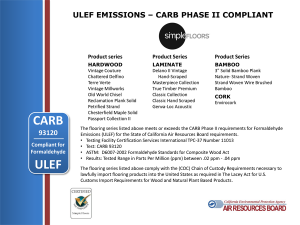 Where Lumber Liquidators failed was in labeling the product as CARB-compliant, yet the wood flooring was not. The company also claimed their testing (done differently than required by CARB) indicates it is compliant, though in order to be compliant with CARB manufacturers must use CARBs stringent testing guidelines as well. Lumber Liquidators did not.
Where Lumber Liquidators failed was in labeling the product as CARB-compliant, yet the wood flooring was not. The company also claimed their testing (done differently than required by CARB) indicates it is compliant, though in order to be compliant with CARB manufacturers must use CARBs stringent testing guidelines as well. Lumber Liquidators did not.
Note* All of OUR hardwood flooring products have been Carb2 Certified by an independent lab. Not only have we had our wood flooring tested, we have the compliant test results to prove it. (see our actual certificate – to the right)

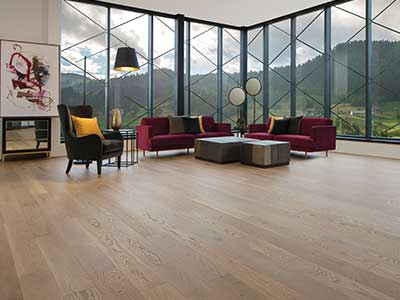
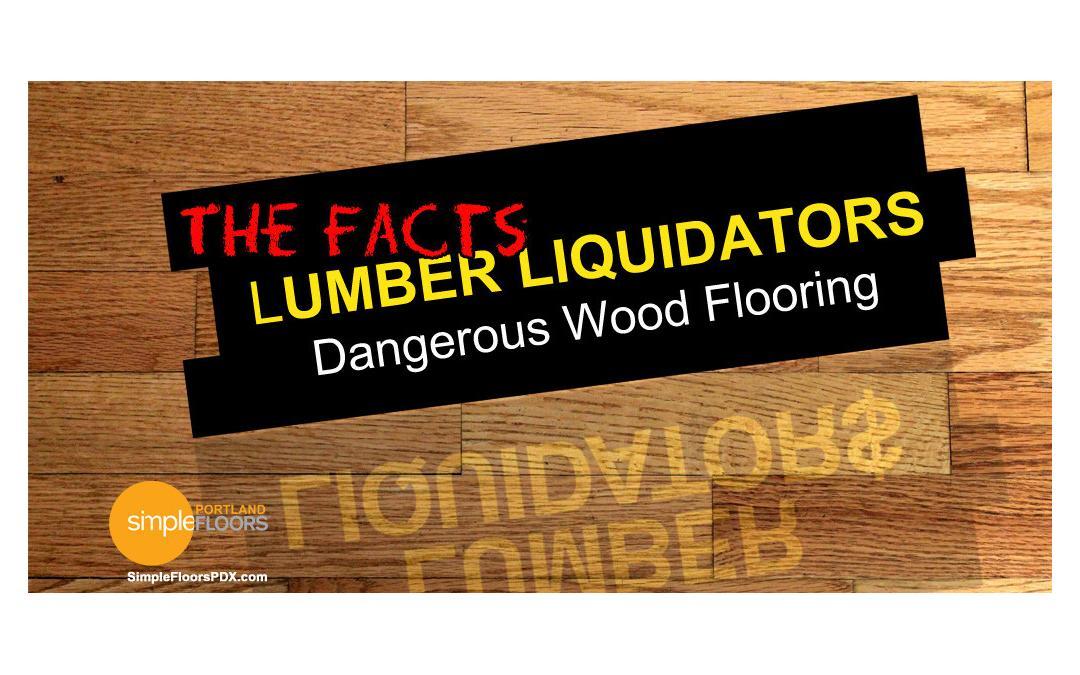


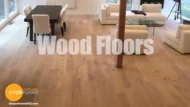


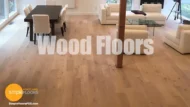
Our laminate floor ing was on the list of floorings from China with more Formeldhide that safe. LL sent out a kit for us to have put about chair high from the floor.. readings came back in normal range. Well, why didnt we get the floor tested with the meter down close to the floor… I need to know if there is a class action lawsuit for this. My significant other for 25 years just passed away after being diagnosed with Non Hodgkins Leukemia, and then 2 other cancers after the Non Hodgkins cancer.
What are the cancers connected to the tainted lumber and laminate floors that were from China.. (sadly just about everything is from China)….
i had flooring bought and installed by lumbar Liquidators. I am now hearing about the formeldhide issues. I live in Canada and need to know if there is a class action lawsuit for this. Also what are you advising the clients impacted to do with regards to having this problem repaired/fix to avoid getting cancer
We suggest that if you have a concern about the floor, have it professionally removed and purchase new flooring.
i bought hardwood from LL in 2015. We did not install until 2019.weve had strange illnesses since, undiagnosed, ranging from high inflamattion, lumps, breathing problems etc. i will remove the floor afyer reading this.thanks
my floor i think is defective or full of formalahyde